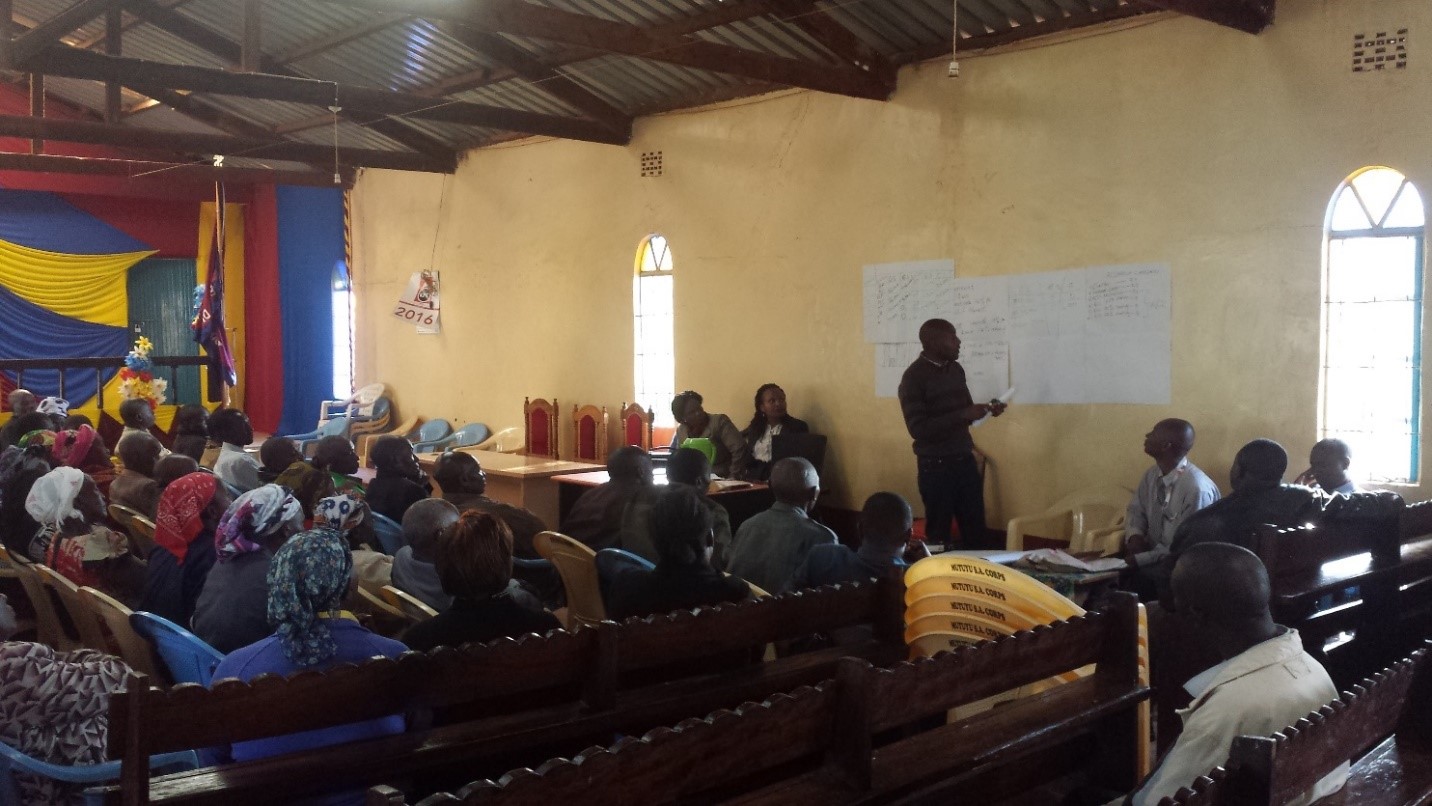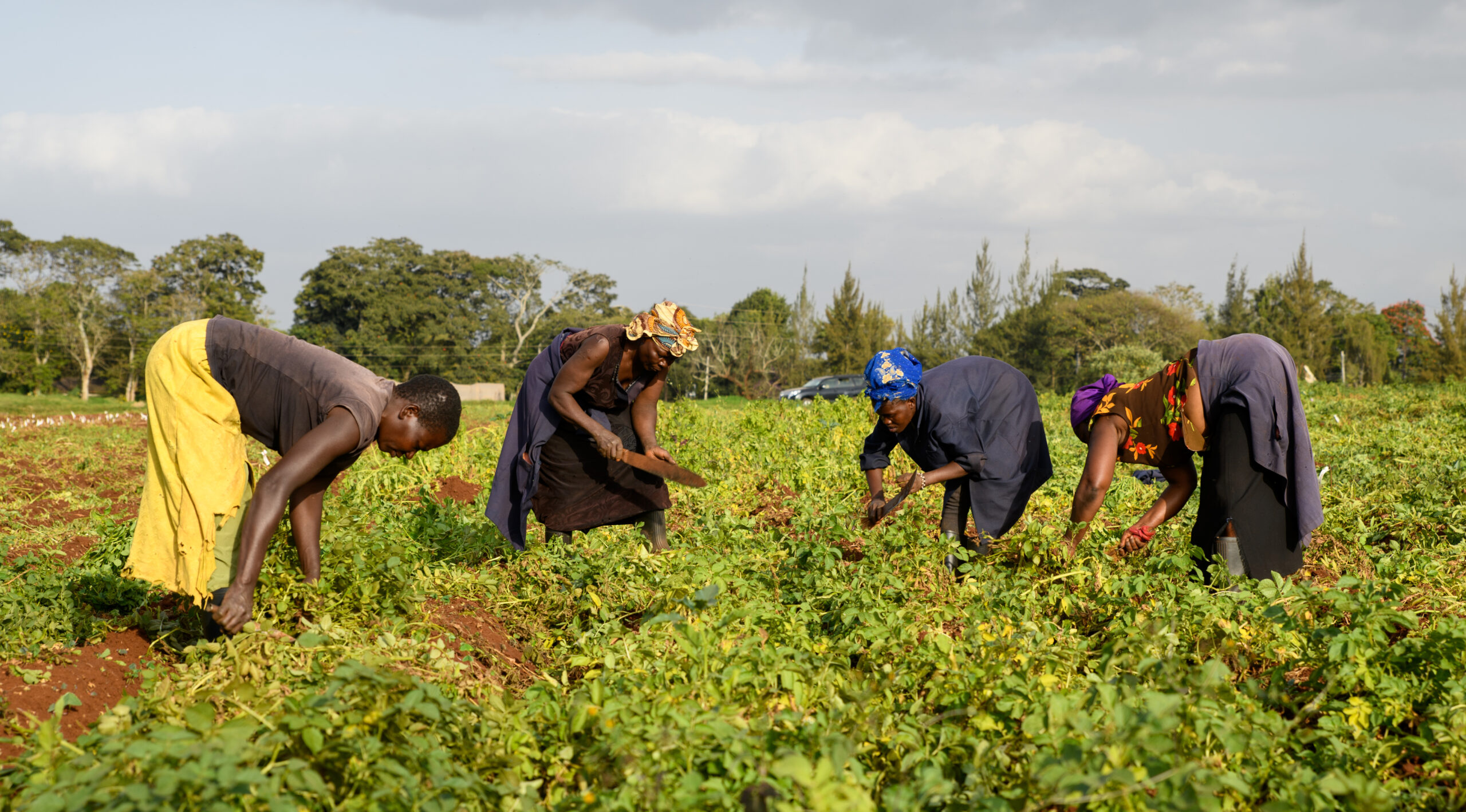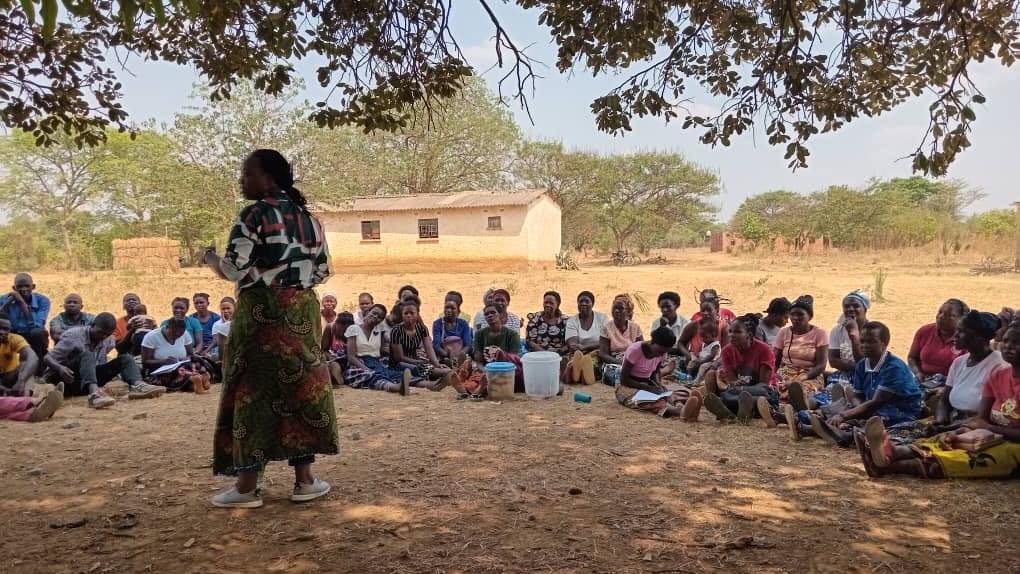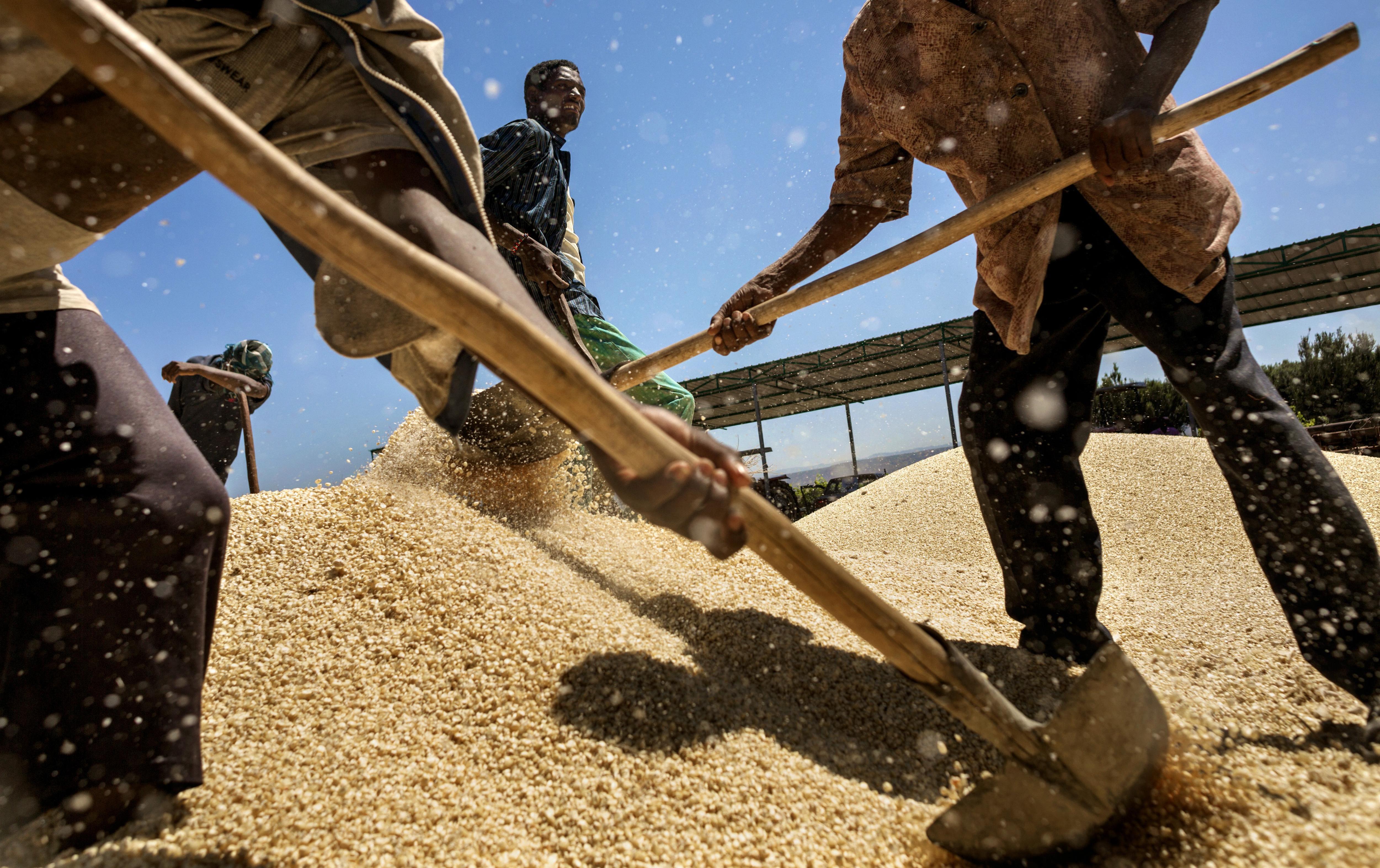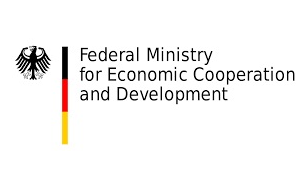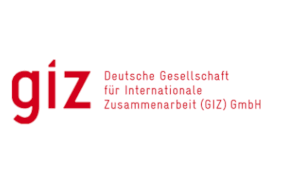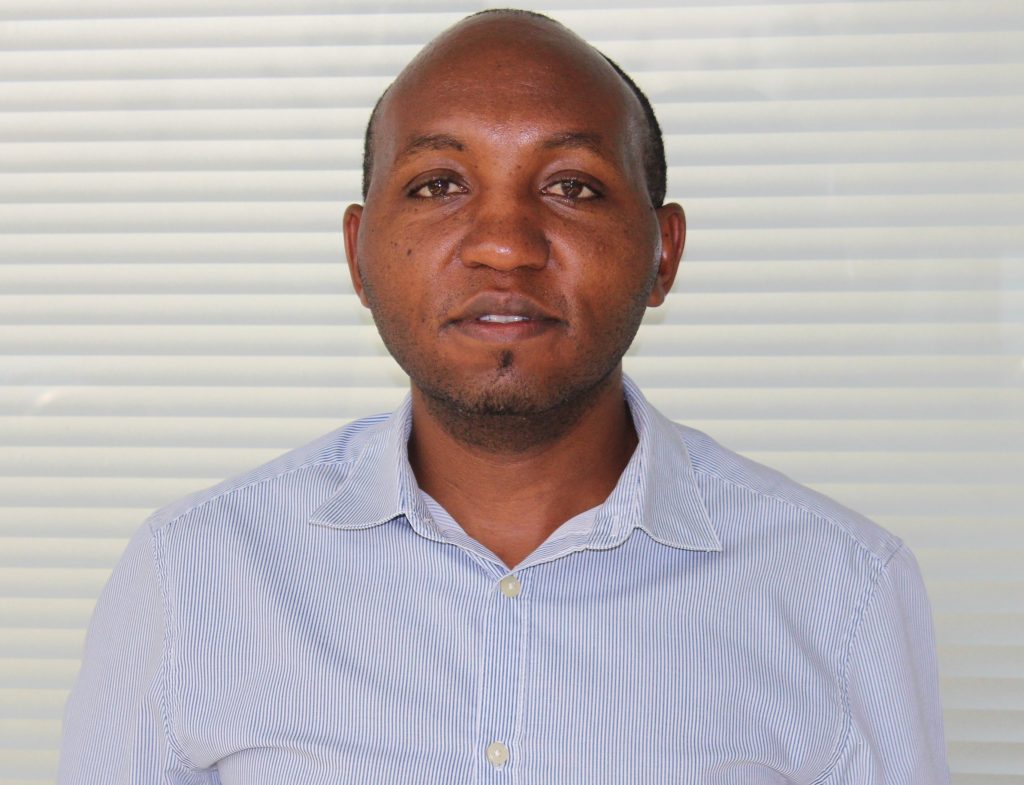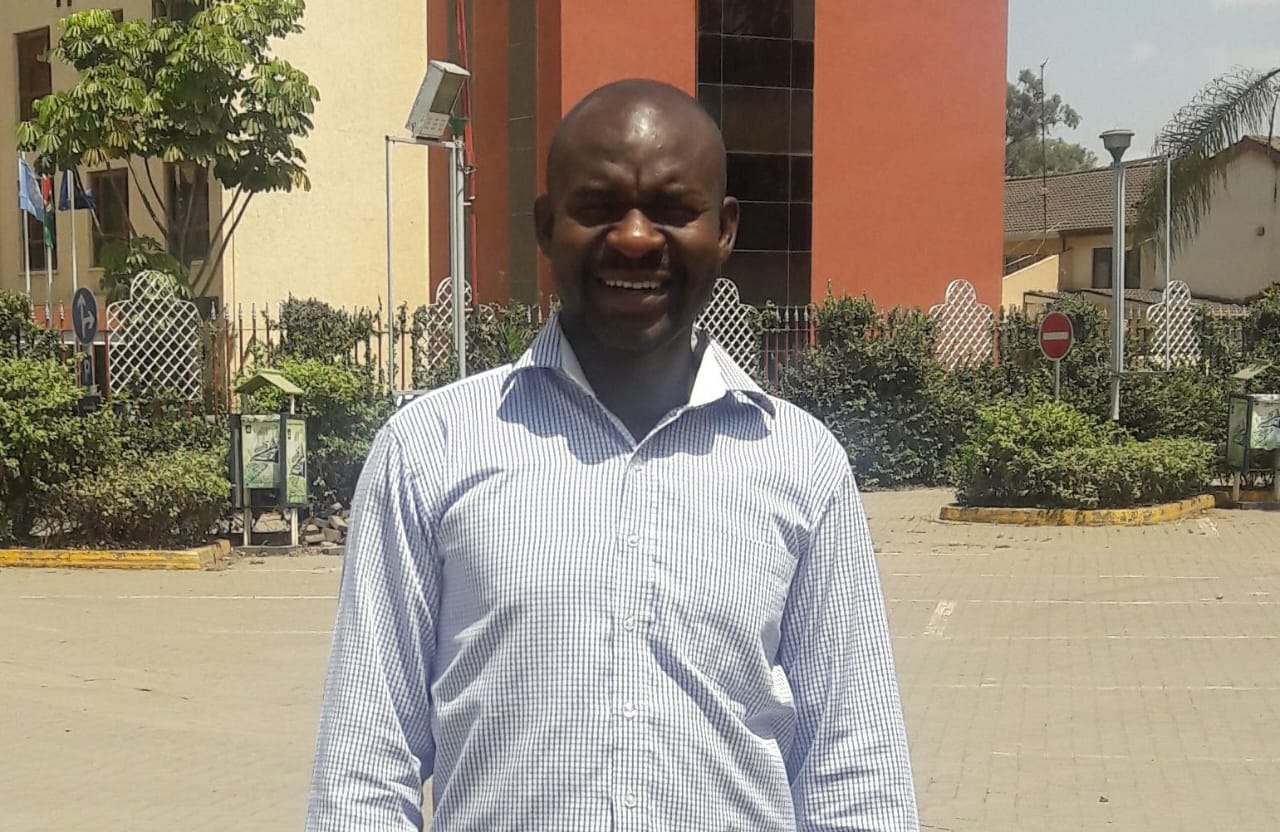Promoting Resilience and Food Security through Risk-Contingent Credit in Africa
Agricultural risks—particularly those associated with drought—are a major contributor to low agricultural productivity in sub-Saharan Africa. New production technologies, such as better seeds or machinery, provide one avenue to increase productivity and improve farm incomes in the face of climate change. Yet small-scale producers lack sufficient access to credit to purchase these technologies, either because they do not have the required collateral, or because the interest rate of the credit is too high due to information asymmetries in the prevailing underdeveloped insurance markets. Hence, a fundamental problem is how to provide farmers with greater access to credit while at the same time minimizing weather-related risks and loan default risks.
To address these challenges, we have piloted a market-based, innovative, risk management solution in the form of Risk-Contingent Credit (RCC). RCC is a general term used for a credit product that embeds within its structure an insurance protection which when triggered transfers part or all of the borrower’s liability to the lender. RCC is aimed at addressing the dual challenges of weather production shocks and credit access constraints. If the underlying weather-related risk worsens and crosses a certain threshold, the farmer’s total repayment obligation falls linearly, with the difference deposited directly into their bank loan account. If the underlying risk is not triggered, the loan must be repaid at the RCC interest. The current product builds on a previous pilot in Kenya and it covers four main objectives: 1) improving the RCC product to minimize basis risk in product design by incorporating key environmental variables such as vegetation phenology, evapotranspiration, and soil moisture from state-of-the-art remote sensors, along with measurements from weather stations. The dynamic trigger highlighting the new product design can be found here; (2) integrating a gender dimension into RCC analysis by including intra-household and cluster-level randomized controlled trials (RCTs) to reach, benefit, and empower women farmers; (3) developing a formal relations with an increasing number of RCC service providers for piloting RCC in Kenya and Ethiopia and, ultimately, other developing countries that suffer from escalating risks due to higher weather volatility induced by climate change; and (4) building capacity on risk management through finance and agronomy trainings for the farmers in Kenya and Ethiopia, PhD fellowships and development of outreach and guidance materials.
Where we work
We are mainly working with smallholder farmers in Kenya and Ethiopia. In Ethiopia, we are conducting randomized trials in three woredas, namely (Adama, Dawo, and Woliso), located in the Oromia region. To test the feasibility of RCC in uncontrolled environment, we have extended the product to farmers in Bora and Dugda woredas on a commercial basis. In Kenya, we have an ongoing RCT among farmers in Machakos County, and commercial product among smallholder farmers ib North and South Mbeere in Embu County.
PUBLICATIONS:
Book Chapter
- Shee, Apurba; Ndegwa, Michael; Turvey, Calum G.; and You, Liangzhi. 2023. Transforming food systems through risk-contingent credit in rural Africa: Development, experimentation, and evaluation. In Food Systems Transformation in Kenya: Lessons from the Past and Policy Options for the Future, eds. Clemens Breisinger, Michael Keenan, Juneweenex Mbuthia, and Jemimah Njuki. Part 4: Toward more resilient food systems, Chapter 12, Pp. 305-334. https://doi.org/10.2499/9780896294561_12.
IFPRI Discussion Paper
- Timu, Anne G.; Shee, Apurba; Ward, Patrick S.; and You, Liangzhi. 2023. Evaluating the gendered credit constraints and uptake of an insurance-linked credit product. IFPRI Discussion Paper 2215. Washington, DC: International Food Policy Research Institute (IFPRI). https://doi.org/10.2499/p15738coll2.137037.
Policy Briefs
- Timu, G Anne, Shee, Apurba, Yilma, Marta, Bellisa, Temesgen, Kebede, Temesgen and You, Liangzhi. 2023. Risk-Contingent Credit (RCC): Assessing smallholders’ agricultural credit needs and the feasibility of implementing RCC in Ethiopia. IFPRI Policy Brief July 2023. Washington, DC: International Food Policy Research Institute (IFPRI). https://doi.org/10.2499/9780896294554.
- Timu G Anne, Apurba, Shee, Liangzhi, You, Evan, G., Aniruddha, G., Pedro C. 2023. Risk-Contingent Credit: A stakeholder engagement to inform project expansion in Kenya. https://hdl.handle.net/10568/130396.
- Timu, G Anne, Shee, Apurba, and You, Liangzhi. 2023. Feasibility of implementing a Risk-Contingent Credit (RCC) program in Zambia: Stakeholder engagement. IFPRI Project Note October 2023. Washington, DC: International Food Policy Research Institute (IFPRI). https://doi.org/10.2499/p15738coll2.136947.
Journal Papers
- Timu, Anne G.; Shee, Apurba; Ward, Patrick S.; and You, Liangzhi. Evaluating the gendered credit constraints and uptake of an insurance-linked credit product among smallholder farmers in Kenya. Journal of Development Studies. Article in press. First published online September 23, 2024. https://doi.org/10.1080/00220388.2024.2404573
- Timu, Anne G.; Manoti, Dismas; Shee, Apurba; and You, Liangzhi. 2024. Impacts of gender-inclusive extension approaches on farmer understanding and willingness to pay for bundled financial services. Current Research in Environmental Sustainability 8(2024): 100268. https://doi.org/10.1016/j.crsust.2024.100268
- Timu, Anne G.; and Kramer, Berber. 2023. Gender-inclusive, -responsive, and -transformative agricultural insurance: A literature review. Global Food Security 36(March 2023): 100672. https://doi.org/10.1016/j.gfs.2023.100672
- Kramer, Berber; Hazell, Peter; Alderman, Harold; Ceballos, Francisco; Kumar, Neha; and Timu, Anne G. 2022. Is agricultural insurance fulfilling its promise for the developing world? A review of recent evidence. Annual Review of Resource Economics 14(2022): 291-311. https://doi.org/10.1146/annurev-resource-111220-014147.
- Ndegwa, Michael K.; Shee, Apurba; Turvey, Calum G.; and You, Liangzhi. 2020. Uptake of insurance-embedded credit in presence of credit rationing: Evidence from a randomized controlled trial in Kenya. Agricultural Finance Review 80(5): 745-766. https://doi.org/10.1108/AFR-10-2019-0116.
- Shee, Apurba; Turvey, Calum G.; and You, Liangzhi. 2019. Design and rating of risk-contingent credit for balancing business and financial risks for Kenyan farmers. Applied Economics 51(50): 5447-5465. https://doi.org/10.1080/00036846.2019.1613502.
- Enenkel, Markus; Farah, Carlos; Hain, Christopher; White, Andrew; Anderson, Martha; You, Liangzhi; Wagner, Wolfgang; and Osgood, Daniel. 2018. What rainfall does not tell us—Enhancing financial instruments with satellite-derived soil moisture and evaporative stress. Remote Sensing 10(11), 1819. https://doi.org/10.3390/rs10111819.
- Komarek, Adam M.; Koo, Jawoo; Wood-Sichra, Ulrike; and You, Liangzhi. 2018. Spatially-explicit effects of seed and fertilizer intensification for maize in Tanzania. Land Use Policy 78(November 2018): 158-165. https://doi.org/10.1016/j.landusepol.2018.06.033.
- Hellin, Jon; Amarnath, Giriraj; Challinor, Andrew; Fisher, Eleanor; Girvetz, Evan; Guo, Zhe; Hodur, Janet; Loboguerro, Ana Maria; Pacillo, Grazia; Rose, Sabrina; Schutz, Tonya; Valencia, Lina; and You, Liangzhi. 2022. Transformative adaptation and implications for transdisciplinary climate change research. Environmental Research: Climate 1(1): 023001. https://doi.org/10.1088/2752-5295/ac8b9d.
- Zia Mehrabi, Ruth Delzeit, …, Liangzhi You. 2022. Research priorities for global food security under extreme events. One Earth, Volume 5, Issue 7, 15 July 2022, Pages 756-766, https://doi.org/10.1016/j.oneear.2022.06.008.
- Ndegwa, M., A. Shee, C. Turvey, L. You. 2022. Sequenced crop evapotranspiration and water requirement in developing a multi-trigger rainfall index insurance and risk-contingent credit. Weather, Climate, Society 14 (1): 19-38. https://doi.org/10.1175/WCAS-D-21-0071.1
- Yang, M., G. Wang, Y. Sun, L. You, R. Anyah. 2023. Water stress dominates the projected maize yield changes in Ethiopia. September 2023, Global and Planetary Change 228(5):104216 https://doi.org/10.1016/j.gloplacha.2023.104216.
- Jonathan Lala, Mekdim D. Regassa, Ying Zhang, Liangzhi You and Paul Block. 2023. Incorporating Seasonality into an Agroeconomic Model of Ethiopia. Journal of Water Resources Planning and Management, Volume 149 Issue 2 – February 2023 https://doi.org/10.1061/JWRMD5.WRENG-5785.
Dissertations
- Lena Büschel: “Which determinants influence maize yields in Sub-Saharan countries?”
- Christopher Krause: “Correlation of yield and remote sensing data for improvements of index-based insurances in Sub-Saharan Africa”
- Samuel Olumide: “Risk preferences, women’s empowerment, and farm investment”
- Dismas Manoti: “Impact of gender-inclusive extension approaches on understanding and willingness to pay for bundled agricultural technologies: case of smallholders in Kenya”
Blogs
- Estimating smallholder maize yields in Ethiopia with satellites and machine learning
- From risk to resilience: How strategic government partnerships can enhance access to insurance-linked credit for smallholders in Zambia
News
- https://www.youtube.com/watch?v=aB2hoPVfGNA
- https://www.businessquest.co.ke/family-bank-to-offer-financing-on-imputs-and-credit-to-farmers/
- https://businessnow.co.ke/1000-smallholder-maize-farmers-to-access-digital-credit/
- https://vipasho.co.ke/1000-smallholder-farmers-set-to-access-digital-credit-to-increase-maize-production-in-embu/
- http://corporateskenya.co.ke/2023/10/04/1000-smallholder-farmers-set-to-access-digital-credit-to-increase-maize-production-in-embu/
- https://www.youtube.com/watch?si=tUIEKPPJUKESzzuf&v=EUtiXiq5wqE&feature=youtu.be
- https://www.youtube.com/watch?v=FpCHlFfbw9Y
- https://www.ifpri.org/news-release/real-time-insurance-farm-credit-helps-kenyans-weather-drought-reuters
- https://www.ifpri.org/news-release/kenyan-farmers-benefit-insured-loans-voa
- https://swalanyeti.co.ke/business/article/7438/how-family-bank-digifarm-partnership-will-impact-over-1000-farmers-in-embu
Podcast




